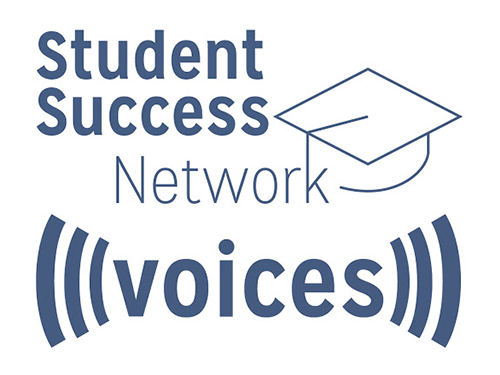Insights


How Do CSU Advising Efforts Compare to National Approaches?
Earlier this year, the CSU Student Success Network released the second report from Destination Integration, its series on academic advising. The studies explore the perspectives of students, advisors, and administrators on advising and advising reform on CSU campuses. In reviewing the authors’ findings, I am intrigued by how closely they mirror the conclusions of national studies of advising and student services, which means that the CSU is not alone in the challenges it faces in seeking to make advising a more integrated experience for students. And if the challenges are not unique to the CSU, then neither are the solutions.

Classes, Cradles and Careers: How Data Can Address Equity Gaps for Parenting Students
More than one fifth of undergraduate college students in the U.S. are parents—or about 3.7 million students. While there is fairly robust national data on this population, in California, we know very little about our “parenting students,” whether at the state, system, or institutional levels. As California embarks on designing a new statewide Cradle to Career education data system, we have an opportunity and a responsibility to build in data that will aid in understanding the unique experiences and needs of these students.

Increasing Community College Workforce Diversity: Evidence from Evaluating Professional Learning Opportunities
College enrollments in California have become more diverse as the number and share of students from underrepresented backgrounds attending college continues to increase, particularly in broad access postsecondary institutions.
EdInsights research associate Jaquelyn Caro-Sena explains that California Community Colleges have a unique opportunity to increase the diversity of their workforce over the next several years, as large numbers of personnel are reaching retirement age. Based on her findings from evaluating the Institutional Effectiveness Partnership Initiative (IEPI), she asks, as this window opens, how can colleges reflect on and adjust their recruiting, hiring and retention practices, so that the diversity of their faculty, staff, and administrators better reflects the diversity of their students?

Making Progress toward a Statewide Education Data System
The California Cradle-to-Career Data System Act created a process for developing the state’s first statewide longitudinal data system. As the design and planning move forward, we will weigh in now and then with thoughts about how the state can make progress with the data system. In this post, Colleen Moore points to some of the critical questions we cannot answer until we have the data system in place and why researchers, policy analysts, policymakers and other stakeholders have long pushed for this critical tool.

How Learning across Systems Supports Middle Leadership
A new report by the Research and Planning (RP) Group of the California Community Colleges, struck a chord for several reasons. Not only was RP one of the inspirations for creating the CSU Student Success Network, the CSU Network’s Middle Leadership Academy is modeled after Leading from the Middle in the community colleges, and many community college colleagues generously helped get the CSU Network off the ground.

What CSU Students Say about Advising
As large public universities, such as those within the California State University system, focus on increasing student success, efforts to improve student advising are front and center. As institutions endeavor to become more student-centered, it’s worth asking: do students perceive advising challenges and opportunities the same way as institutional leaders do?
This post draws from our two applied research studies on academic advising: Destination Integration.

California’s Education Systems: A Sum of the Moving Parts
When we started the California Education Policy Fellowship Program (EPFP) in 2016, in partnership with the Center for California Studies, we knew that we needed a resource that laid out the major K-12 and postsecondary education issues in California all in one place. We could not find one document that provided all the background information we think systems thinkers need to have in public education in California. So we created our own.

Using an Equity Lens to Inform Practice: Learning from the Middle Leadership Academy
This is the third in a series of blogs about efforts to eliminate equity gaps in the CSU. Thad Nodine describes the equity work underway on CSU campuses, based on their participation in the Middle Leadership Academy, a professional learning program that is supporting teams of CSU faculty, staff, and administrators in addressing equity-based opportunity and outcomes gaps on their campus. The blog also describes the Academy’s approach in creating a space where campus teams in the CSU come together to learn from colleagues and other campuses.

Why the Simplest Cradle-to-Career Data System May be the Best Place to Start
A long awaited window is opening. Governor Gavin Newsom’s first budget proposes $10 million to develop a longitudinal education data system that would “better track student outcomes and increase the alignment of our educational system to the state’s workforce needs.” But the people who will decide whether and how to create a statewide data system face some critical choices—namely, what purpose would such a data system serve? Who would use it and which questions would it be designed to answer?

Strengthening Education Partnerships, Data Sharing, and Equity-based Inquiry in the CSU
In the second in a series of blogs about efforts to eliminate equity gaps in the CSU, Thad Nodine reports on the CSU Network’s fall Convening focusing on regional education partnerships and the use of data sharing to support equity-based inquiry and outcomes on CSU campuses. Sacramento State President Robert S. Nelsen and Sacramento City Unified School District Superintendent Jorge A. Aguilar spoke to the gathered teams about the role of partnerships in achieving reforms and improving outcomes at their institutions. Then the teams got to work, discussing how to use the external partnerships to increase equitable student outcomes at their respective universities.
EdInsights Publications and Presentations
EdInsights publications and presentations are available for the public to view and share.
